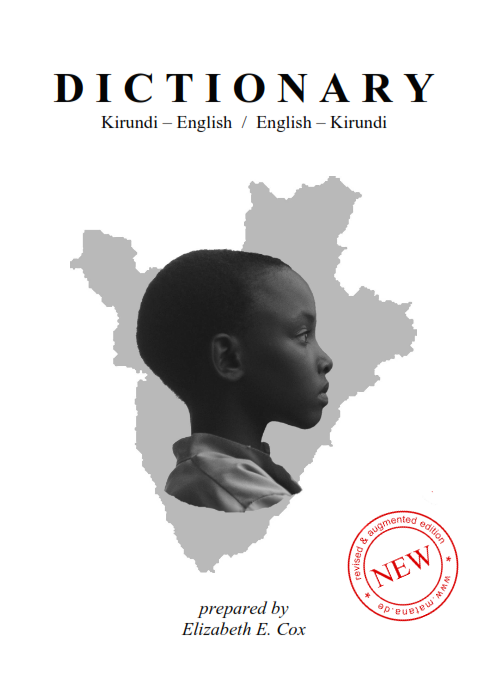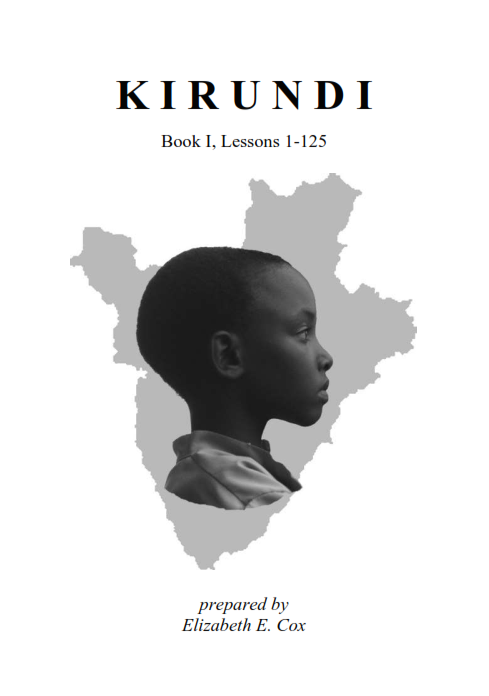person ▶ umuntu
(bad) umubi
(Black or African) umwirabura
(cross) ibāmba
(courageous) intwāri
(dedicated to Kiranga) igihwēba, igishegu
(dishonest) igihūmbu
(elderly) umusāza
(fearful) igihumura
(from far away) umunyankīko
(good, kind, just, holy, righteous) umwerānda
(grammar, ~ of verb) umuvugwa
(handsome) umuhizi
(hard to get along with) ikigoryi
(harsh) umuhāmbāzi
(honest, speaking truth) imvugakuri, umunyakuri
(honorable) umupfāsoni, umwūbahwa, nyakubahwa
(intelligent, skilled, eloquent) umuhānga
(kind and charitable) umukūndanyi
(lovable) umunyagikūndiro
(malformed) ikirema
(mean and quarrelsome) ikijōra
(meek) umugwanēza
(merciful) umunyembabazi
(miserable) umugōrwa
(of high rank, noble character) umupfāsoni
(of nice disposition) ikirende
(one by himself) inyakamwe
(sharp) inkazi
(skillful) umuntu w'inkuba, umugesera
(strong) umunyenkomezi
(stubborn) intakonywa, intābwīrwa
(tall, fat) ikigwīnyīra
(weak) umugoyigoyi, urudēndevu
(white) umuzungu, umwera
(who is great, severe, wise) akaranda
(with many children) umurēngera
(worthy of praise or love) umunyagikūndiro
(bad) umubi
(Black or African) umwirabura
(cross) ibāmba
(courageous) intwāri
(dedicated to Kiranga) igihwēba, igishegu
(dishonest) igihūmbu
(elderly) umusāza
(fearful) igihumura
(from far away) umunyankīko
(good, kind, just, holy, righteous) umwerānda
(grammar, ~ of verb) umuvugwa
(handsome) umuhizi
(hard to get along with) ikigoryi
(harsh) umuhāmbāzi
(honest, speaking truth) imvugakuri, umunyakuri
(honorable) umupfāsoni, umwūbahwa, nyakubahwa
(intelligent, skilled, eloquent) umuhānga
(kind and charitable) umukūndanyi
(lovable) umunyagikūndiro
(malformed) ikirema
(mean and quarrelsome) ikijōra
(meek) umugwanēza
(merciful) umunyembabazi
(miserable) umugōrwa
(of high rank, noble character) umupfāsoni
(of nice disposition) ikirende
(one by himself) inyakamwe
(sharp) inkazi
(skillful) umuntu w'inkuba, umugesera
(strong) umunyenkomezi
(stubborn) intakonywa, intābwīrwa
(tall, fat) ikigwīnyīra
(weak) umugoyigoyi, urudēndevu
(white) umuzungu, umwera
(who is great, severe, wise) akaranda
(with many children) umurēngera
(worthy of praise or love) umunyagikūndiro
En-En dictionary
umuvugwa (imi-) 2 class 2
singular: umu-
plural: imi- ▶ person of verb (gram.)
singular: umu-
plural: imi- ▶ person of verb (gram.)
without ▶ (without is expressed by a verb in the –ta– negative, e.g. He went without saying Goodbye = Yagiye atavuze N’agasaga)
(~ pity or regarding) utwīninga, irarīrari
(~ pity or regarding) utwīninga, irarīrari
En-En dictionary
-fise v ▶ to have (verb without infinitive or past)
-fitiye v ▶ to have for (verb without infinitive or past)
-ōye v ▶ 1. don't (strong negative), 2. lest, (verb without infinitive)
-ri v ▶ is, are (verb without infinitive or past)
-rimwo contains
irahari available
-rimwo contains
irahari available
-rimwo v ▶ to contain, to include, including (verb without infinitive, from -ri)
-ti v ▶ says (verb without infinitive)
ati he, she says
avug'ati he, she says that
ati he, she says
avug'ati he, she says that
-zi v ▶ to know (verb without infinitive or past)
gushinyagurira (-shinyaguriye) v ▶ 1. to abuse (verbally), 2. to disgrace
gushīra v ▶ (verb without past) to be almost over (night)
ijoro rishīra ubuca night is almost over, about to dawn
ijoro rishīra ubuca night is almost over, about to dawn
inkōmbe (in-) 3 class 3
singular: i-,in-
plural: i-,in- ▶ shore, lakeshore, riverbank, coast
singular: i-,in-
plural: i-,in- ▶ shore, lakeshore, riverbank, coast
irivuga (ama-) 5 class 5
singular: i-,iri-
plural: ama- ▶ verb
singular: i-,iri-
plural: ama- ▶ verb
umugani (imi-) 2 class 2
singular: umu-
plural: imi- ▶ proverb, parable, fable, tale (from kuganira)
singular: umu-
plural: imi- ▶ proverb, parable, fable, tale (from kuganira)
do ▶ (to) kugira, gukora
(again) kwongera
(always) kwāma, guhora
(anyhow, in spite of) gupfa
(continually) kwāma, guhora
(the dishes) kwoza ivyombo
(even more) kurushiriza
(first) kubānza, gushūza
(forcefully) kwīhanukīra
(habitually) kumēnyera
(have too much to ~) kurēngerana
(the impossible) gufyidikīra
(~-it-yourself) ukugira utugenegene
(housework) kugora
(one's duty) gushimika
(quickly) gukwākwānya, gushōka, gusobaganya, gusūriranya, gutebūtsa
(quickly and carelessly) kuraha
(quickly without thinking) gusimbagurika
(~ not) -ōye (verb without infinitive)
(reluctantly) kwīyumānganya
(a sloppy job) kurēngagiza
(something alone) kwīgūnga
(something by oneself without authority) kwigenera
(something that causes pleasure or amazement) gusamāza
(that which you declared you would not ~) kwīrahuruza
(two things at once) kubāngikanya
(unwillingly) kugoyagoya
(unwillingly and complainingly) kunyinkira
(the washing up) kwoza ivyombo
(again) kwongera
(always) kwāma, guhora
(anyhow, in spite of) gupfa
(continually) kwāma, guhora
(the dishes) kwoza ivyombo
(even more) kurushiriza
(first) kubānza, gushūza
(forcefully) kwīhanukīra
(habitually) kumēnyera
(have too much to ~) kurēngerana
(the impossible) gufyidikīra
(~-it-yourself) ukugira utugenegene
(housework) kugora
(one's duty) gushimika
(quickly) gukwākwānya, gushōka, gusobaganya, gusūriranya, gutebūtsa
(quickly and carelessly) kuraha
(quickly without thinking) gusimbagurika
(~ not) -ōye (verb without infinitive)
(reluctantly) kwīyumānganya
(a sloppy job) kurēngagiza
(something alone) kwīgūnga
(something by oneself without authority) kwigenera
(something that causes pleasure or amazement) gusamāza
(that which you declared you would not ~) kwīrahuruza
(two things at once) kubāngikanya
(unwillingly) kugoyagoya
(unwillingly and complainingly) kunyinkira
(the washing up) kwoza ivyombo
En-En dictionary
verb found in: Kirundi I (Study lessons)
lesson 1 ▶ Class 1 umu–, aba–
lesson 5 ▶ Mu and Ku
lesson 10 ▶ Review 1 - 9
lesson 12 ▶ Verb –ri
lesson 15 ▶ Special Uses of Class 4 iki–, ibi–
lesson 16 ▶ –ra Present Tense of Verb
lesson 17 ▶ Negative of the –ra– Present
lesson 19 ▶ Class 5 i–, ama– & Continuous present
lesson 20 ▶ Review 11 - 19
lesson 21 ▶ Verb –fise
lesson 22 ▶ Infinitive and Imperative
lesson 27 ▶ Class 8 ubu–, ama–
lesson 29 ▶ Future Tense
lesson 30 ▶ Review 21 - 29
lesson 32 ▶ Class 9 uku–, ama–
lesson 33 ▶ Class 10 aha-
lesson 45 ▶ Verb –zi (To know)
lesson 49 ▶ Review 41 - 49
lesson 53 ▶ Past Verb Endings
lesson 57 ▶ Object Pronouns I
lesson 65 ▶ –o with the Infinitive
lesson 66 ▶ Imperatives with the Subjunctive
lesson 67 ▶ Subjunctive
lesson 68 ▶ Negative Imperative and Subjunctive
lesson 71 ▶ Far Past Tense
lesson 72 ▶ Negative of Far Past
lesson 78 ▶ Causative Verbs I
lesson 82 ▶ Gurtya, Gurtyo
lesson 83 ▶ Passive Verbs
lesson 84 ▶ Past of Passives
lesson 86 ▶ Demonstrative Adjectives I
lesson 89 ▶ Not Yet Tense
lesson 91 ▶ Dependent Clauses
lesson 95 ▶ Relative Clauses (No noun antecedent)
lesson 96 ▶ Pronoun nde?
lesson 98 ▶ Prepositional Form of Verb
lesson 99 ▶ Uses of Prepositional Form
lesson 100 ▶ Review 91 - 99
lesson 102 ▶ Miscellaneous Words
lesson 103 ▶ Reflexive Verbs
lesson 104 ▶ Uses of Nta
lesson 105 ▶ Further Notes on Nta
lesson 106 ▶ Reciprocal Form of Verb
lesson 107 ▶ Associative Verbs
lesson 108 ▶ Adverb –te? Comparisons
lesson 109 ▶ How to Say “Why?”
lesson 112 ▶ Adjectives Expressed by Verbs
lesson 114 ▶ Quotations, Direct and Indirect
lesson 115 ▶ Prepositional Suffixes
lesson 117 ▶ Ka Tense
lesson 121 ▶ More Miscellaneous Expressions
lesson 123 ▶ Narrative Tenses I
lesson 124 ▶ Narrative Tenses II
lesson 125 ▶ Review 111 - 124
verb found in: Kirundi II (Grammar)
chapter 1 ▶ Compound Past Tenses
chapter 2 ▶ Compound Future Tenses, Compound Conditional
chapter 3 ▶ Conditional Sentences – “if”
chapter 4 ▶ –ba as an Auxiliary Verb
chapter 5 ▶ Continuous (or Actual) Present
chapter 9 ▶ “immediately”
chapter 10 ▶ –o– Conditional in Present, Past and Future
chapter 11 ▶ Subjunctive and Imperative
chapter 12 ▶ Subjunctive used for Contrasting Statement
chapter 18 ▶ Optative Mood
chapter 19 ▶ Strong Negative Imperatives
chapter 21 ▶ Intensive Form: Infix –na–
chapter 23 ▶ Future and Negative Infinitives
chapter 25 ▶ Some uses of –ri
chapter 26 ▶ Special Verb Endings
chapter 27 ▶ Transitive and Intransitive Verbs
chapter 29 ▶ Opposites
chapter 30 ▶ Prepositional Forms of Verbs having Special Meanings
chapter 31 ▶ Causatives formed irregularly
chapter 32 ▶ Intensive expressed by the Infinitive
chapter 34 ▶ kwama, guhora – “to always...”
chapter 36 ▶ kumara as an Auxiliary Verb
chapter 37 ▶ –ruha as an Auxiliary Verb
chapter 38 ▶ –sanga as an Auxiliary Verb
chapter 41 ▶ Certain Object Pronouns after n–
chapter 42 ▶ Direct Object preceding the Verb
chapter 43 ▶ Unusual Verb Accords
chapter 46 ▶ “when” Clauses
chapter 47 ▶ Expressions like “after a year”
chapter 51 ▶ Nouns made from Verbs
chapter 67 ▶ Ordinal Numerals with ubwa, or –gira: kubiri, etc.
chapter 73 ▶ How to say “without”
chapter 79 ▶ Various Expressions










 printable PDF files.
printable PDF files.

 This unique dictionary by Betty Cox is known for the deep cultural insight it provides to many Kirundi terms. It has been thouroughly revised, adapted to present-day Kirundi orthography rules and many new words and meanings have been added.
This unique dictionary by Betty Cox is known for the deep cultural insight it provides to many Kirundi terms. It has been thouroughly revised, adapted to present-day Kirundi orthography rules and many new words and meanings have been added. The Kirundi self study course guides you through 125 lessons and makes you learn both the necessary vocabulary and basic grammar.
The Kirundi self study course guides you through 125 lessons and makes you learn both the necessary vocabulary and basic grammar. English pronunciation by
English pronunciation by


